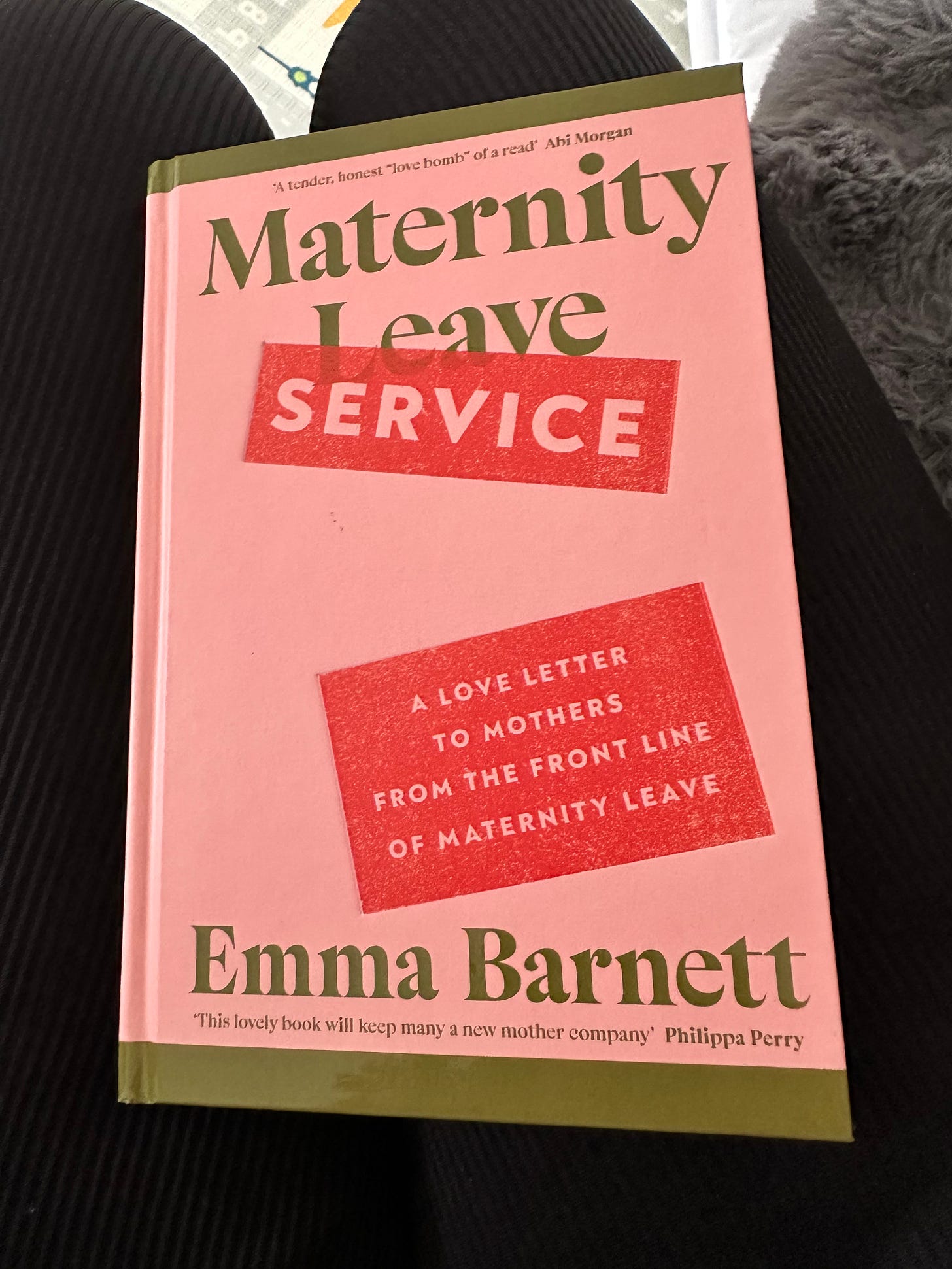Maternity service
Emma Barnett has a new book which renames maternity leave as maternity service.
This makes total sense to me - ‘maternity service’ comes closer to capturing the reality of what happens when your life becomes 100% about the full-time care of another. As she explains in this book, it’s far from a holiday! And it does involve protocol: wearing a uniform (leggings and anything baggy), following a strict routine (you are awake at 2, 3, 4, 5am) and never having a day off.
Some people still genuinely associate maternity leave with rest or a break, but only because they haven’t personally taken one or witnessed it close up. You might think wow, it’s several months long (in Europe). Yet the only bit that has any rest or pause is the few days before you have the baby. And let’s not forget that’s typically around a week of someone wobbling about whilst heavily pregnant, attending several medical appointments in trepidation of what’s ahead. And then it’s all action - your body going through immense pressure, pain and permanent reconfiguration, a new human bursting on to the scene and chaos 24/7!
Maternity leave and working whilst caring for a young baby is the most rigid routine I’ve ever worked under. I used to set an alarm for maybe 7-7.30am. But being able to sleep that late now is a distant dream! Babies have strict routines from which any deviation is terrifying. You prepare baby bottles every 3 hours, they eat at designated times, they must have a nap during a certain window. But they are also anarchic in many other ways: breastfeeding happens any time of night and the baby cries anytime - due to needing a nappy change, hunger, eating, being bored of eating, illness, losing a toy under the sofa…! The new mum has no idea what’s going on most of the time. It’s like trying to learn a language and how to ski whilst in a blizzard and a drought, on a motorway in the middle of Piccadilly Circus. It’s that relaxing!
Workplaces need to support the return from maternity leave with full understanding that their employees’ life has been turned upside down. I was always planning to return to work around 7 months after my baby arrived. It is hard to plan but I knew I’d miss my work identity. It’s a place where if you are lucky, you can use your brain, skills and life experience. But working with a baby to care for means priorities have shifted.
Workplaces should ask about these plans and support several keeping in touch days if the employee chooses. These are days to be part of work again - to attend a key meeting, conference or social event. It can be so helpful for the new mother to feel like a person in her own right, and it’s important not to be left out of the loop of decisions. Just because we’re knee deep in baby wipes, doesn’t mean we don’t understand or care about our teams.
Returning to work is improved with a coach or buddy who has been through the experience. The purpose of the role is to provide a space for the returner to discuss how it’s going and to have a plan for overcoming challenges. Often the responsibility for supporting returners gets lumped in with other management and HR responsibilities, but it deserves specialist attention.
Books like Maternity Service shine a light on a key time in many people’s lives. It’s time we talk about the front line of motherhood.




